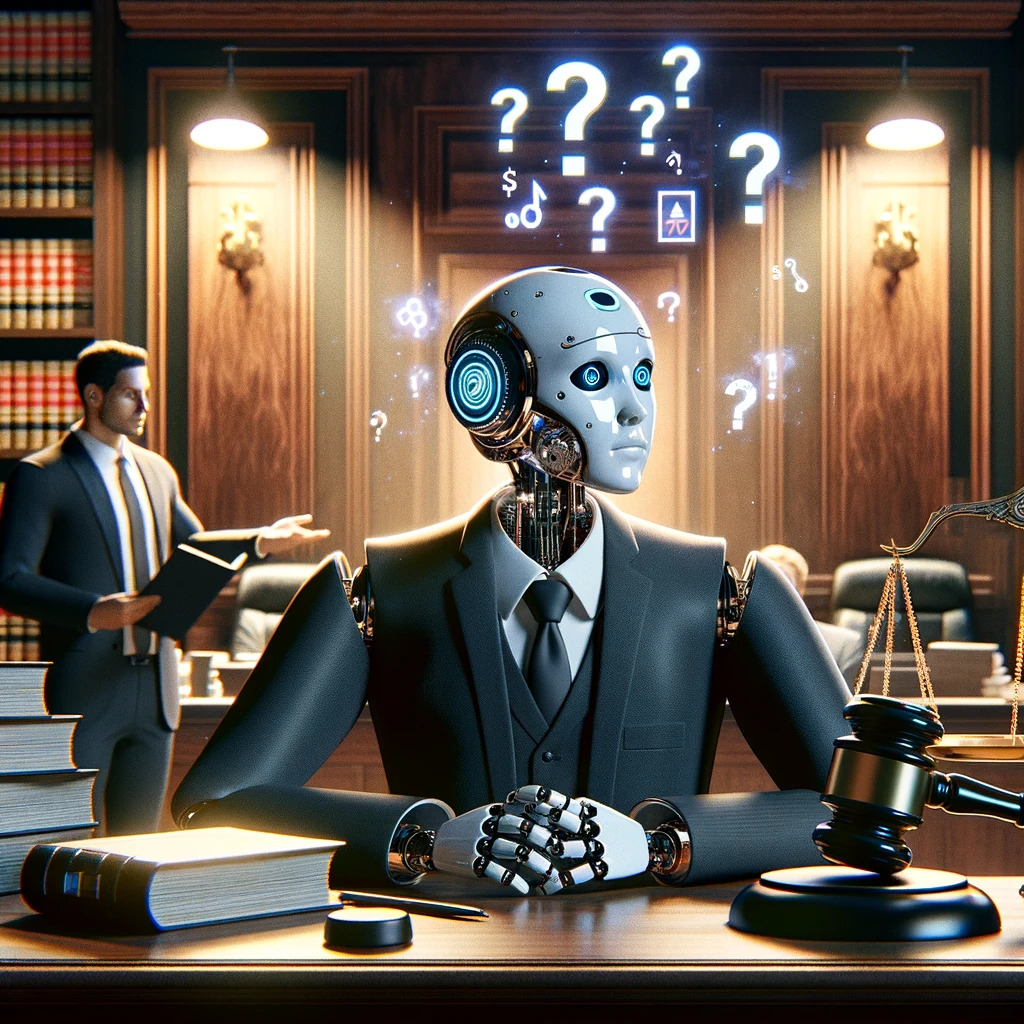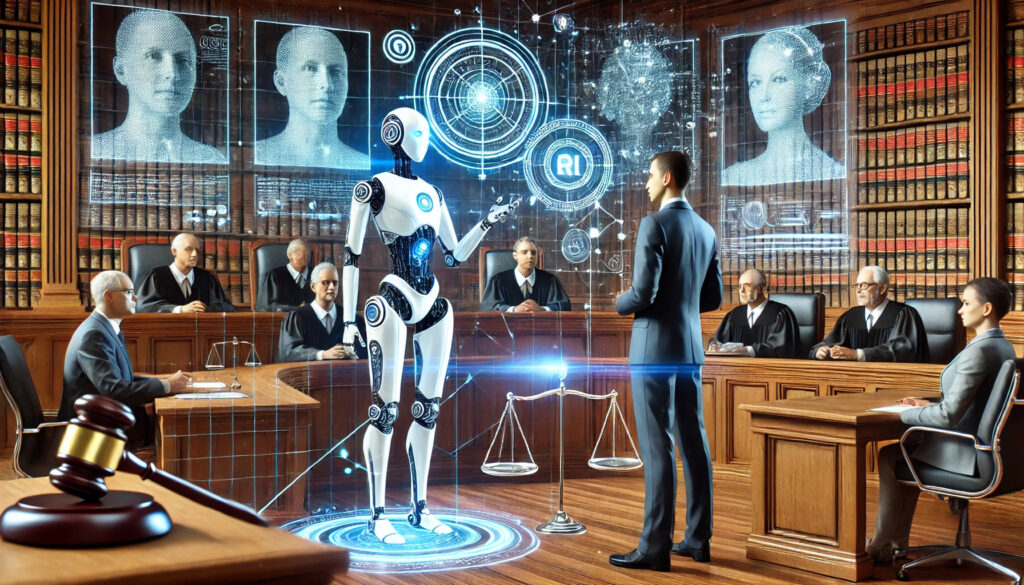Discover how artificial intelligence is transforming the legal profession in 2025.Will AI Replace Lawyers? What You Need To Know in 2025 Explore the future of law, AI’s capabilities, and why human lawyers remain irreplaceable in this comprehensive guide.
Artificial intelligence is rapidly changing industries, and the legal profession is not an exception. It is now a subject of ongoing debate, which is: Will lawyers be replaced by AI? We are now in the year 2025, where the issue is now more prominent than it has ever been. AI is all about efficiency and cost reduction, and yet it brings along and requires clear thinking, proper judgement, and sometimes impassable human qualities that only a lawyer possesses.
Let’s scrutinise the trend of artificial intelligence in the legal sector so that we can understand whether this technology is a friend, a foe, or both to lawyers.

The Evolution of AI in the Legal Industry:
- Brief History of AI in Legal Services:
The involvement of AI in law is not something that hasn’t been observed before. The first tools, like LexisNexis and Westlaw, made a radical change in legal research by incorporating technology. They managed to digitize large amounts of case law and statutes, and after that, information retrieval was made faster and more accurate. Despite all this, they were just the beginning.
However, today the inclusion of AI is not just a helping hand in the search. It is used to power tools such as contract analysis, due diligence, and litigation prediction, which no doubt prove that AI can replace paralegals and junior associates in doing repetitive tasks.
- AI’s Growing Role in Modern Legal Practices:
By the year 2025, contract review and analysis using AI tools like Luminance and Kira Systems are becoming very advanced and are the first to pioneer such a thing. They can complete tasks in minutes that used to take hours. With the help of predictive analytics tools, not only can lawyers now forecast the case outcomes based on historical data, but also chatbots give basic legal recommendations to defer the client, thus making the latter feel more focused on the subject.
Understanding What AI Can and Cannot Do in Law:

Key Capabilities of AI in Legal Work:
AI excels in automating primarily repetitive work streams like:
- Contract review to find defective or incoherent phrases.
- Running an e-discovery to separate intended matters from irrelevant issues in litigation from a huge amount of data.
- Analysing data to predict the chances of success in a case.
The aforementioned instances are the saving grace of a time-consuming process, and they lower the costs of the legal services, which in turn become more accessible to clients.
The Limitations of AI in Legal Practice:

Nevertheless, AI comes with some limitations. It does not have the ability to:
- Comprehend emotional and moral specifics in a case.
Make up original suggestions specifically for some novel situations from the law domain.- Be forceful and convincing before a judge.
Law is equally contested conventions and judgements, as it is about rules, certainly, thus these human characteristics continue to lie outside the realm of AI.
Will Lawyers Be Replaced by AI?
The Arguments Supporting AI as a Replacement:
Some strong points in favour of AI are as follows:
- Less expensive: AI eliminates extra labour, thus cheapening legal remuneration.
- Quality: AI systems escape the human error risk when data processing.
On the basis of these advantages, it is claimed that AI would replace those occupational spheres that are associated with the pattern performance of duties only.
The Counterarguments: Why Lawyers Are Irreplaceable
Nevertheless, lawyers make key contributions that cannot be replaced by AI:
Emotional intelligence: understanding a client’s needs and offering empathetic counsel.
Judgement and advocacy: crafting compelling arguments and navigating complex legal systems.
AI is unable to develop trust, negotiate successfully, or to win over a jury—some really important skills of the legal profession.
Challenges of Integrating AI in Legal Practices:
Ethical Concerns Surrounding AI in Law:
AI systems can inherit biases from their training data, leading to ethical dilemmas. Who is accountable if an AI-driven decision leads to injustice? These questions highlight the importance of human oversight in AI applications.
Technological and Financial Barriers
Implementing AI is costly, especially for smaller firms. Training staff to use these tools effectively is another challenge, requiring time and resources.
The Future of Lawyers and Artificial Intelligence:

Predictions for AI’s Role in Legal Services by 2030:
In 2030, it is very likely that AI will be capable of completing most administrative tasks; thus, lawyer professionals will be able to fully concentrate on complex litigation and advisory missions. Furthermore, the introduction of AI-powered virtual courtrooms might lead to the development of both shorter and more efficient.
The Changing Role of Lawyers in a Tech-Driven Era:
Legal practitioners will have to keep up with the times by including technology in their practice and sharpening the client-side virtues of empathy, integrity, and proficient problem-solving that AI cannot replace artificially.
What This Means for Aspiring Lawyers:
Skills Lawyers Need to Stay Relevant
To thrive in an AI-driven world, aspiring lawyers should focus on:
- Developing emotional intelligence.
- Gaining technical proficiency in AI tools.
- Enhancing critical thinking and negotiation skills.
Opportunities in AI-Law Specialisations:
New career paths are emerging in areas like legal tech development, AI ethics, and data privacy law, offering exciting opportunities for tech-savvy lawyers.
Conclusion:
While AI is transforming the legal landscape, it is unlikely to replace lawyers entirely. Instead, it will complement their skills, enabling them to work smarter and deliver better outcomes for clients. By embracing this technology, lawyers can stay ahead of the curve and redefine their roles in a rapidly evolving industry.
Also reads these Articles:
Will AI Replace Accountants? Exploring the Future of Accounting

